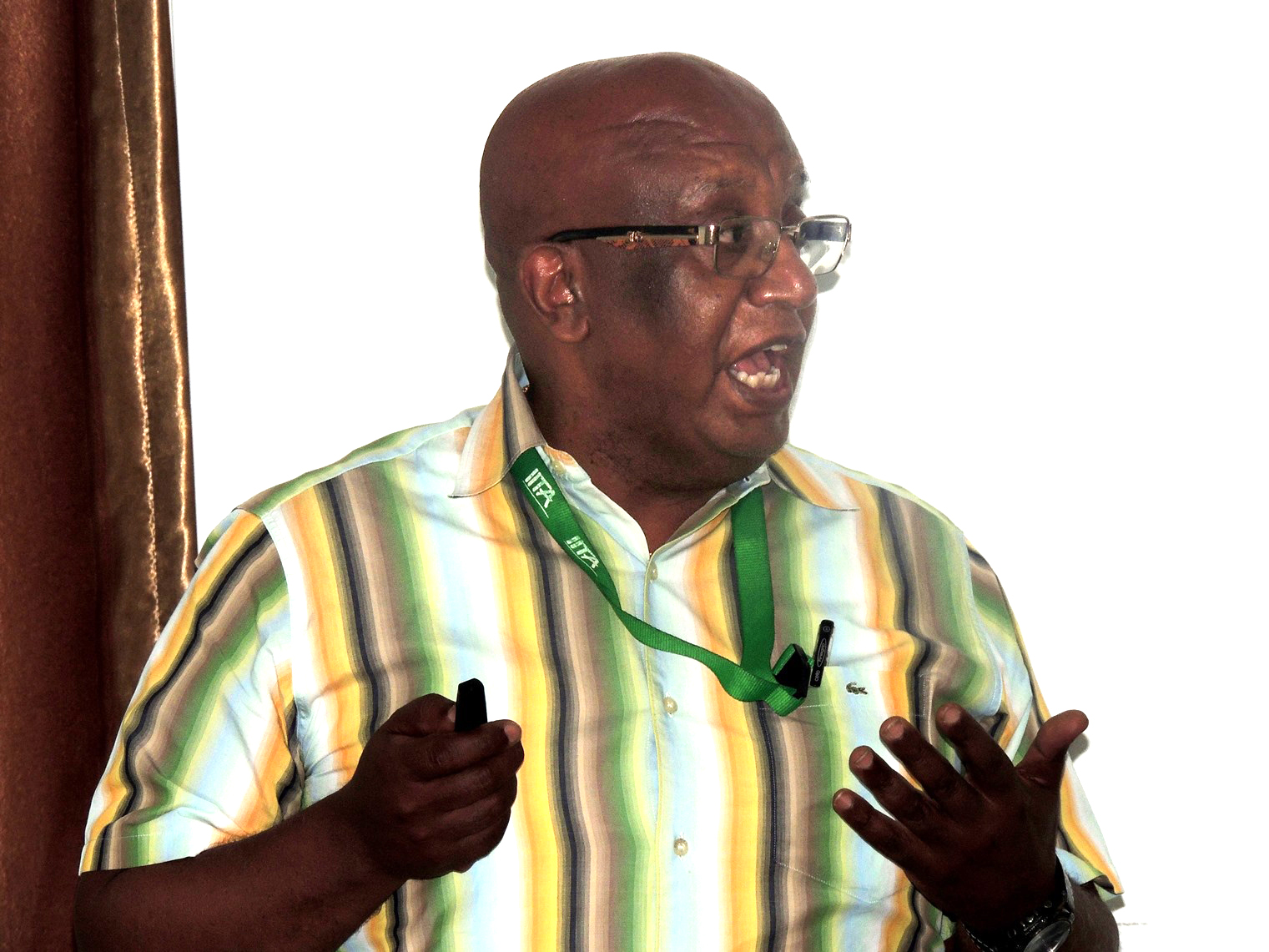Although IITA has made great progress in integrating gender in its research there is still a lot that needs to be done to transform the Institute to a lead center in gender research and development outcomes. This was said by Dr Amare Tegbaru, IITA’s Gender Specialist, Unit Head and Humidtropics Gender Research Coordinator, during a seminar presentation entitled Engaging in IITA Gender Research aiming at enhancing equity and social inclusion in African Agriculture and Rural Development, held at IITA- Tanzania on 18 June 2015.
“When I joined IITA, gender was not a priority. We did not have any concerted efforts to integrate gender into our Research for Development. There was some gender research going on but it was mainly donor-driven and based on individual interpretations of what that meant,” Dr Tegbaru said. “It did lead to some successful outcomes and outputs which were strengthened and built upon by the CRPs (CGIAR Research Programs) which stressed gender research.”
“Currently, Dr Tegbaru said, “IITA’s is ensuring that all its research programs are gendered so that all technologies generated are able to benefit women and other vulnerable people. The Institute also has a gender policy in place and is emphasizing training on gender mainstreaming in addition to hiring more gender experts.”
Why gender research?
“Gender is not just about numbers. It’s also about voices and access to assets and improvement in decision-making. IITA’s vision to reduce hunger and poverty and malnutrition through increasing the yield of important staples can happen only when gender concerns are taken seriously. Our quest to enhance efficiencies and improve nutrition in the continent will not happen if we do not understand the context. We also need to know how our efforts will affect women and how they will lead to gender equity between men and women and other marginalized groups,” he said.
Dr Tegbaru gave examples of some of the initiatives he had been involved in at the Institute that had integrated gender into their research agenda for greater impact. These included developing a gender strategy for the Humidtropics to address gender issues in systems thinking. “The strategy is distinct in that it is guided by the social science definition of gender as one among other systems of classification, such as those based on age, generation, kinship, race, ethnicity, religion, and social class. It emphasizes social inclusiveness of marginalized and minority ethnic groups and goes beyond gender responsive/adoptive research approach to a transformative research approach that contributes to change in power relations and the empowerment of women.”
Addressing Gender norms constraints
According to Dr Tegbaru, innovations in agriculture and Natural Resource Management (NRM) are constrained by existing gender norms which legitimize gender inequality in the control over and use of productive assets and resources. This holds back development.
On the other hand, more gender-equitable control over and use of resources leads to higher levels of poverty reduction, food security, nutrition, and sustainable resource use.
He gave examples of the Making agricultural innovations work for smallholder farmers affected by HIV and AIDS, in short, the MIRACLE project. This was implemented in Malawi, Mozambique, and Zambia, and sought to address the immediate health and nutritional needs of people living with HIV and AIDS. But in the end, the women who were marginalized and excluded owing to their HIV/status rose up in the community to become change agents and some were even elected as community leaders.
“The project and its innovation platform partners contributed to more transformational changes in the form of a reduction of the stigma and improvements in social inclusion. We are now trying to understand how the project transcended from addressing the immediate health and nutritional security needs and unlocked the hidden and suppressed potential of women. “Backed by measurable evidence we are working to produce the stories of these women. They had become change agents and innovative champions serving their communities as lead farmers, elected community leaders, and some of them in the Training of Trainers on post-harvest processing and value addition,” Dr Tegbaru said. In conclusion he said there was still a lot of work ahead to be done to consolidate these gains and strengthen gender research at IITA. This in turn would ensure there
was a sustained analytical capacity
that could effectively translate IITA’s science-based outcomes of change not only in terms of income and improved nutrition but also in enabling the empowerment of women and other marginalized groups in decision-making and change in social and power relations.



No Comments